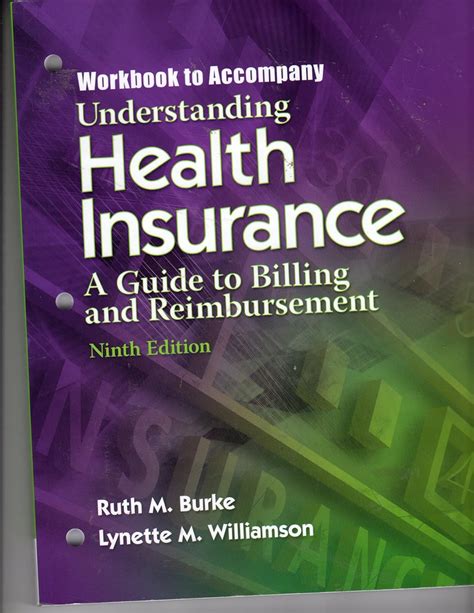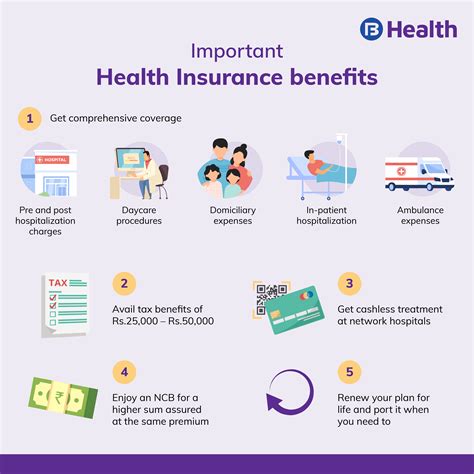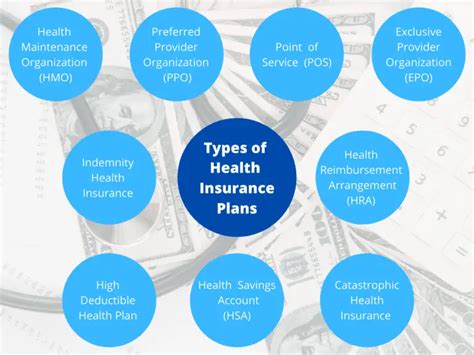Intro
Shopping for health insurance plans can be a daunting task, especially with the numerous options available in the market. However, having the right health insurance plan is crucial for ensuring that you and your loved ones receive the best possible medical care without breaking the bank. With the rising costs of healthcare, it's essential to find a plan that meets your needs and fits your budget. In this article, we'll delve into the world of health insurance plans, exploring the various types, benefits, and factors to consider when shopping for the perfect plan.
The importance of health insurance cannot be overstated. It provides financial protection against unexpected medical expenses, allowing you to focus on recovery rather than worrying about the cost of treatment. Moreover, many health insurance plans offer preventive care services, such as routine check-ups and screenings, which can help detect health problems early on. By investing in a health insurance plan, you're not only protecting your physical health but also your financial well-being.
As you begin your search for the ideal health insurance plan, it's essential to understand the different types of plans available. From individual and family plans to group and employer-sponsored plans, each type has its unique features and benefits. You'll also need to consider factors such as network providers, deductibles, copays, and coinsurance. With so many options to choose from, it's crucial to do your research and compare plans carefully to find the one that best suits your needs.
Understanding Health Insurance Plans

To navigate the complex world of health insurance plans, it's essential to understand the key components that make up a plan. These include the network of providers, which refers to the doctors, hospitals, and other healthcare professionals who participate in the plan's network. You'll also need to consider the deductible, which is the amount you must pay out-of-pocket before the insurance plan kicks in. Additionally, copays and coinsurance are other important factors to consider, as they can significantly impact your out-of-pocket expenses.
Types of Health Insurance Plans
There are several types of health insurance plans available, each with its unique features and benefits. These include: * Health Maintenance Organization (HMO) plans, which require you to receive care from a specific network of providers * Preferred Provider Organization (PPO) plans, which offer more flexibility in terms of provider choice * Exclusive Provider Organization (EPO) plans, which combine elements of HMO and PPO plans * Point of Service (POS) plans, which allow you to choose between different types of providersBenefits of Health Insurance Plans

One of the most significant benefits of health insurance plans is the financial protection they offer against unexpected medical expenses. With a health insurance plan, you can rest assured that you'll be able to receive the medical care you need without breaking the bank. Additionally, many health insurance plans offer preventive care services, such as routine check-ups and screenings, which can help detect health problems early on. Other benefits of health insurance plans include:
- Access to a network of providers, which can help you find the best possible care
- Negotiated rates with providers, which can help reduce your out-of-pocket expenses
- Support for chronic condition management, which can help you manage ongoing health conditions
How to Choose the Right Health Insurance Plan
With so many health insurance plans available, it can be challenging to choose the right one. Here are some factors to consider when shopping for a plan: * Network providers: Make sure the plan's network includes your preferred providers * Deductible: Choose a plan with a deductible that fits your budget * Copays and coinsurance: Consider the out-of-pocket expenses associated with the plan * Pre-existing conditions: If you have a pre-existing condition, make sure the plan covers it * Maximum out-of-pocket expenses: Choose a plan with a maximum out-of-pocket expense that fits your budgetShopping for Health Insurance Plans

When shopping for health insurance plans, it's essential to compare plans carefully to find the one that best suits your needs. Here are some tips to keep in mind:
- Research different types of plans, such as HMO, PPO, and EPO plans
- Compare plan benefits, including network providers, deductibles, copays, and coinsurance
- Read reviews and ask for referrals from friends and family members
- Consider working with a licensed insurance agent or broker to help you navigate the process
Common Mistakes to Avoid
When shopping for health insurance plans, there are several common mistakes to avoid. These include: * Not researching different types of plans * Not comparing plan benefits carefully * Not reading reviews and asking for referrals * Not considering the maximum out-of-pocket expenses associated with the planHealth Insurance Plan Options

There are several health insurance plan options available, including:
- Individual and family plans, which are designed for individuals and families who are not eligible for group coverage
- Group plans, which are designed for employers and organizations
- Employer-sponsored plans, which are offered by employers as a benefit to their employees
- Medicare and Medicaid plans, which are designed for seniors and low-income individuals
Special Considerations
When shopping for health insurance plans, there are several special considerations to keep in mind. These include: * Pre-existing conditions: If you have a pre-existing condition, make sure the plan covers it * Chronic condition management: If you have a chronic condition, choose a plan that offers support for condition management * Mental health and substance abuse treatment: If you need mental health or substance abuse treatment, choose a plan that covers these services * Prescription drug coverage: If you take prescription medications, choose a plan that covers your medicationsHealth Insurance Plan Costs

The cost of health insurance plans can vary significantly depending on several factors, including the type of plan, network providers, deductible, copays, and coinsurance. Here are some factors that can impact the cost of a health insurance plan:
- Age: Older individuals may pay more for health insurance
- Location: Health insurance plans can vary significantly depending on the state and region
- Income: Low-income individuals may be eligible for subsidized health insurance plans
- Family size: Larger families may pay more for health insurance
Financial Assistance Options
If you're struggling to afford health insurance, there are several financial assistance options available. These include: * Subsidies: The government offers subsidies to low-income individuals and families to help them afford health insurance * Tax credits: You may be eligible for tax credits to help offset the cost of health insurance * Cost-sharing reductions: Some health insurance plans offer cost-sharing reductions, which can help reduce your out-of-pocket expensesHealth Insurance Plan Enrollment

Once you've chosen a health insurance plan, it's essential to enroll in the plan during the designated enrollment period. Here are some tips to keep in mind:
- Research the enrollment period: Make sure you understand when you can enroll in a health insurance plan
- Gather required documents: You'll need to provide proof of income, citizenship, and other documents to enroll in a plan
- Compare plan benefits: Make sure you understand the plan benefits, including network providers, deductible, copays, and coinsurance
- Ask questions: Don't be afraid to ask questions if you're unsure about any aspect of the plan
Post-Enrollment Tips
After enrolling in a health insurance plan, there are several tips to keep in mind. These include: * Understand your plan benefits: Make sure you understand what's covered and what's not * Keep your plan information up-to-date: Notify your insurer of any changes to your income, family size, or other factors that may impact your plan * Take advantage of preventive care services: Many health insurance plans offer preventive care services, such as routine check-ups and screenings * Review your plan annually: Make sure you're still enrolled in the best possible plan for your needsWhat is the difference between an HMO and a PPO plan?
+An HMO plan requires you to receive care from a specific network of providers, while a PPO plan offers more flexibility in terms of provider choice.
How do I choose the right health insurance plan for my needs?
+Consider factors such as network providers, deductible, copays, and coinsurance when choosing a health insurance plan. It's also essential to research different types of plans and compare plan benefits carefully.
What is the enrollment period for health insurance plans?
+The enrollment period for health insurance plans varies depending on the type of plan and the state you live in. It's essential to research the enrollment period and plan ahead to ensure you can enroll in a plan when you need to.
As you continue on your journey to find the perfect health insurance plan, remember to stay informed, ask questions, and prioritize your needs. With the right plan in place, you'll be able to enjoy peace of mind knowing that you're protected against unexpected medical expenses. We invite you to share your thoughts and experiences with health insurance plans in the comments below. Have you found the perfect plan for your needs? What factors did you consider when shopping for a plan? By sharing your insights, you can help others make informed decisions about their health insurance needs.
